Special Report
The Most Contaminated Foods You Can Buy at the Grocery Store
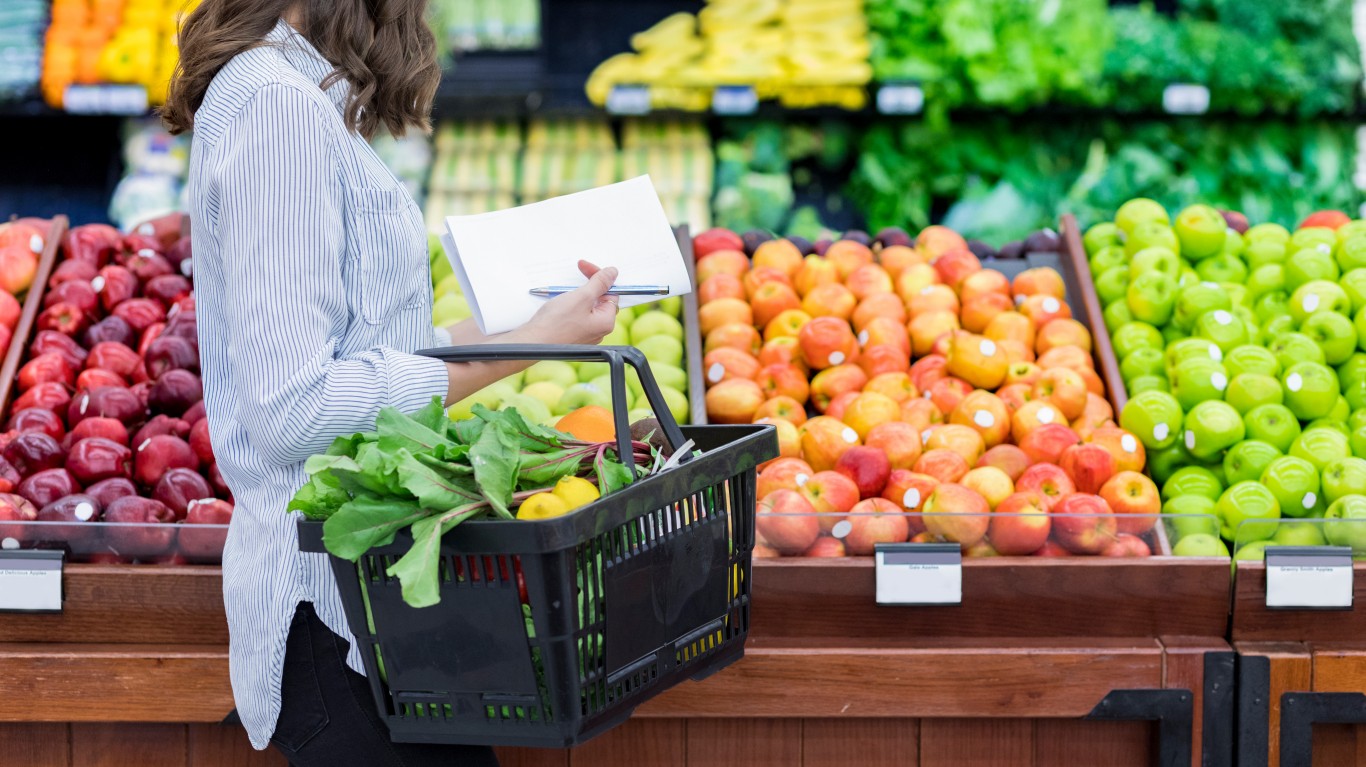
Published:

You may want to reconsider eating those fiber-rich strawberries. And maybe think twice before adding two of the always so popular vegetables to make a smoothie “green.” Yes, we are talking about spinach and kale. Those two superfoods are among fruits and vegetables that contain the most pesticides, according to the Environmental Working Group’s 2022 “Dirty Dozen” report.
Kale has appeared on the list of contaminated foods since 2019, after not appearing on it for about a decade. (Collard and mustard greens, kale’s relatives, are on the list too.) And almost all samples of strawberries the nonprofit organization tested had detectable amounts of at least two pesticides. Spinach, a favorite leafy green for smoothies, did not fare much better. Half of the tested samples contained at least one bee-killing pesticide that has been banned in Europe.
Other produce on the list: apples, cherries, nectarines, grapes, peaches, pears, celery, and tomatoes. And, worst of all, bell and hot peppers, which tests showed contain residue from the highest number of pesticides – 101 and 103 different kinds, respectively.
Pesticides include a wide variety of chemicals that are used to kill insects, weeds, mold, and rodents that may destroy the produce. While they may protect the food, they can also be toxic to people, according to the World Health Organization. (They may, however, help combat some of the most devastating invasive species.)
The pesticide that has been detected the most in greens was Dacthal – a trade name for Dimethyl tetrachloroterephthalate – one of two pesticides known by the abbreviation DCPA. The Environmental Protection Agency classified it in 1995 as a possible human carcinogen, and the EU banned its use beginning in 2009.
Environmental experts advise buying organic produce whenever possible because it can limit your exposure to extra pesticides and insecticides. Certified organic fruits and vegetables are theoretically free of synthetic pesticides, though they may contain natural substances that have a pesticidal effect. (These are foods with a strikingly low impact on the environment.)
Click here to see the most contaminated foods you can buy at the grocery store
Whether produce containing pesticides is really harmful depends on the amount of residue the fruit or vegetable in question contains. For example, according to the Alliance for Food and Farming Pesticide Residue Calculator, a child would have to consume 340 apples in one day in order to experience adverse effects from the pesticides found on the fruit.
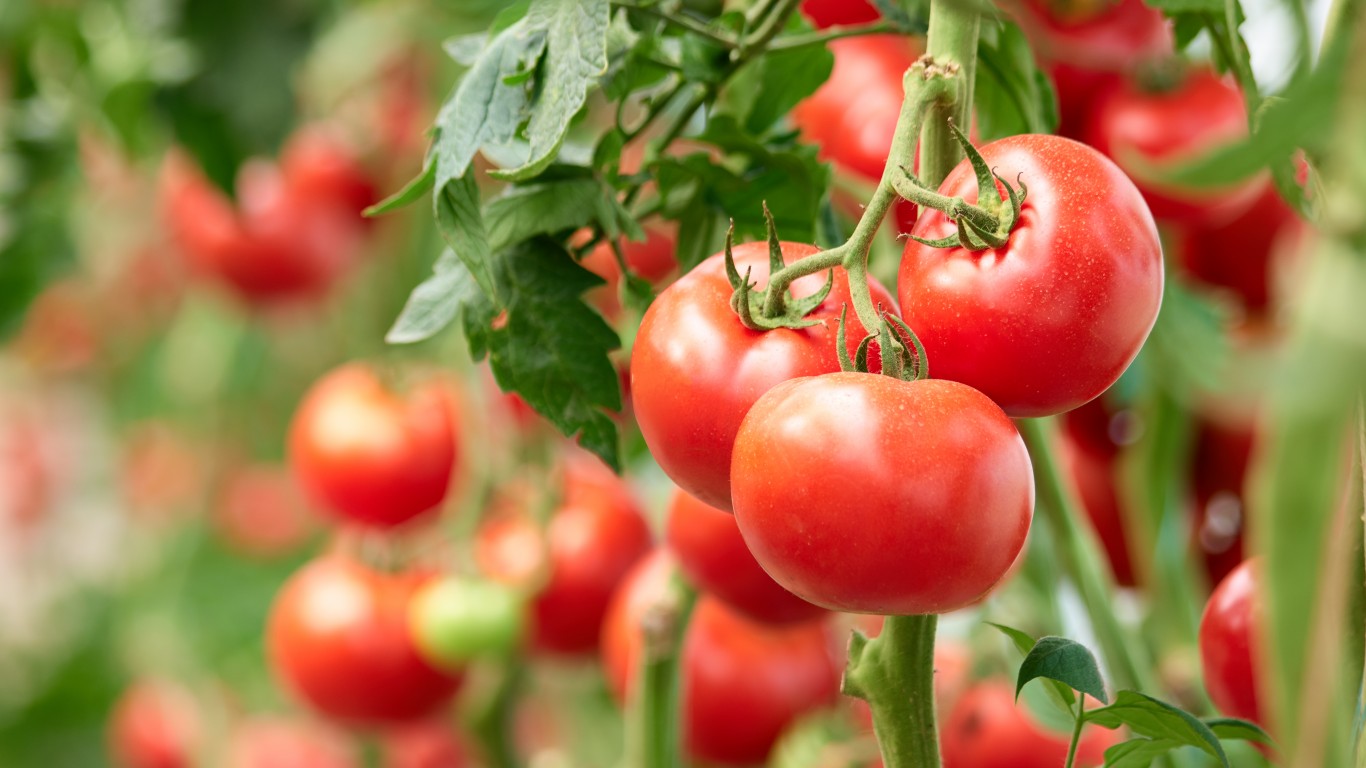
12. Tomatoes
Tomatoes – especially cooked or canned tomatoes, including juice and sauce – are high in the carotenoid lycopene, which multiple lab studies have shown is capable of inhibiting the growth of cancerous cells and tumors. About 17% of tomatoes tested, however, contain traces of the pesticide Endosulfan II, a suspected hormone disruptor.
[in-text-ad]
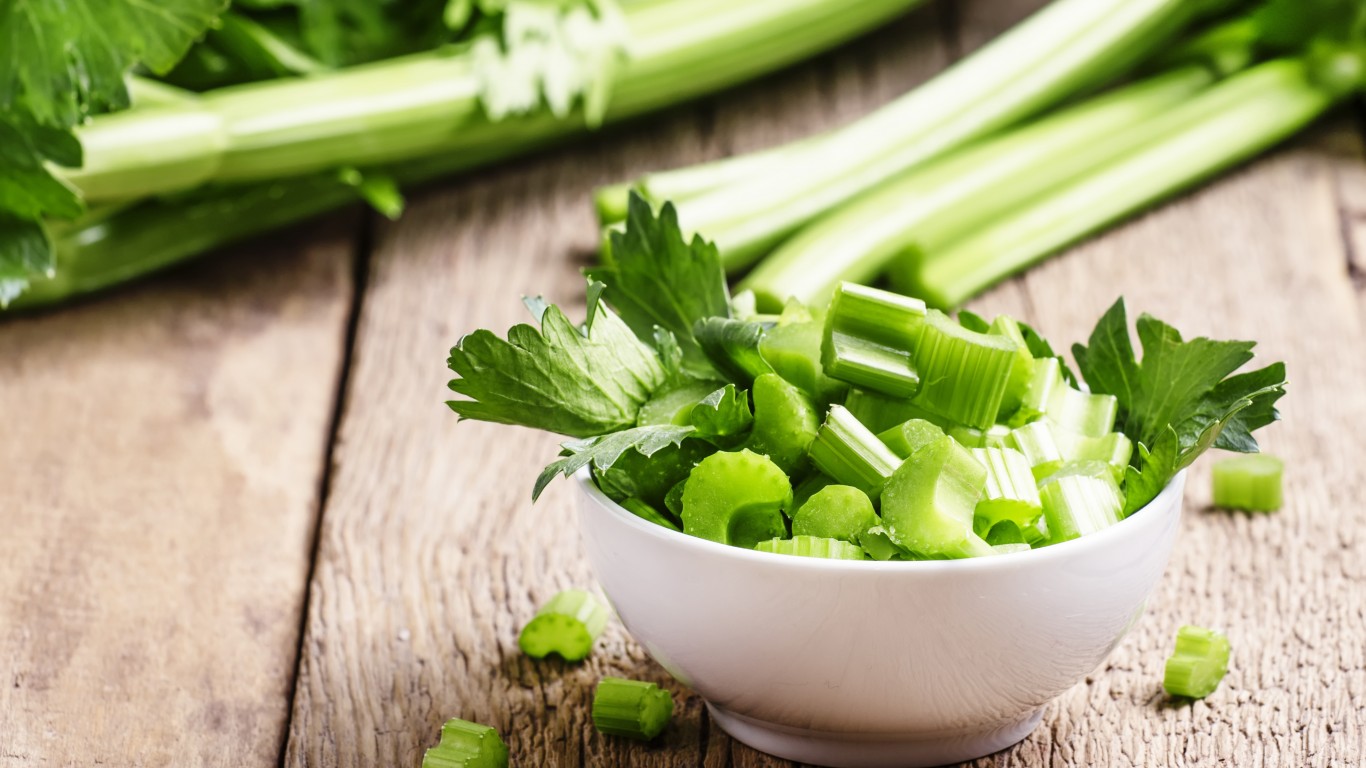
11. Celery
Celery is a negative-calorie food, which means that the body spends more calories breaking celery down than it takes from the vegetable itself, resulting in an average loss of calories. Virtually all commercially grown celery, though, contains the pesticides Chlorantraniliprole and Spinosad, the latter of which is a known bee toxin.
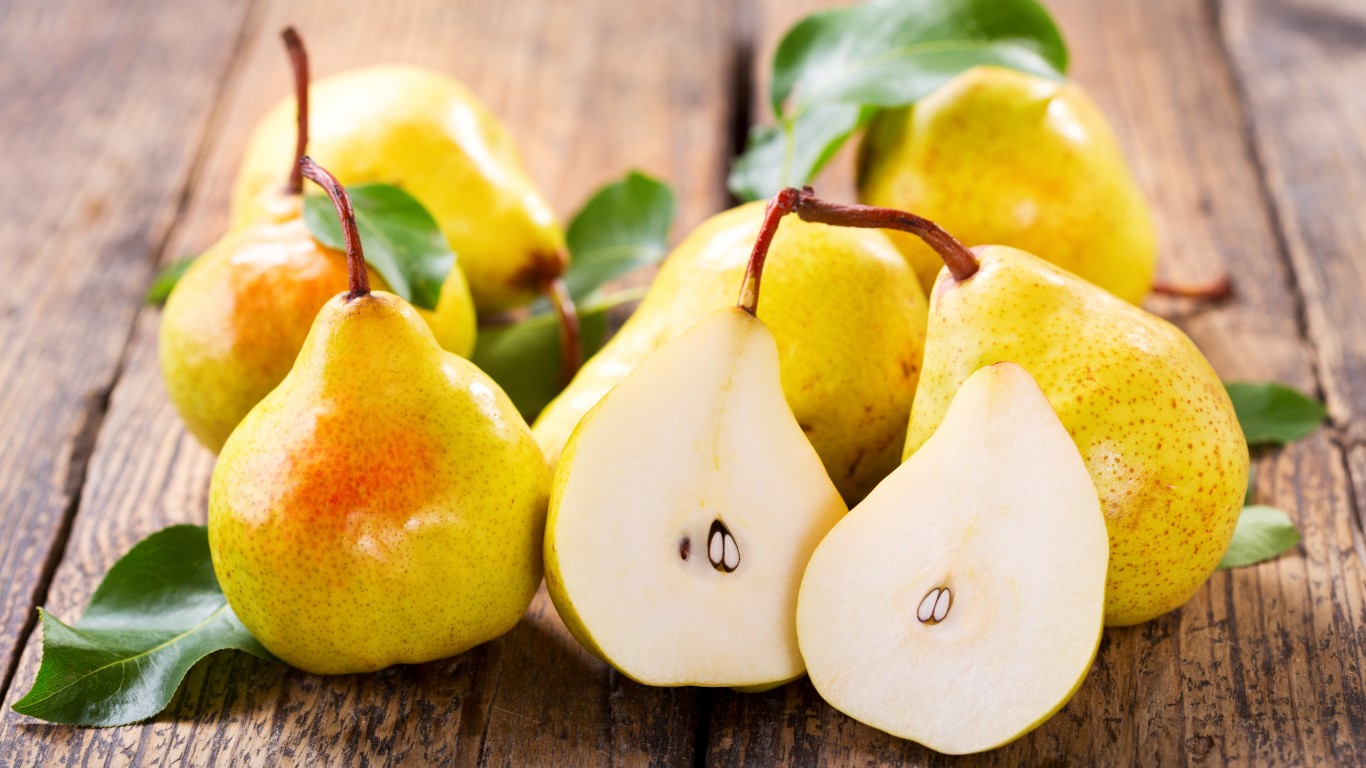
10. Pears
Pears are known to be good for the digestive system and have anti-inflammatory properties. they may also boost heart health and lower the risk of diabetes. The down side? Some 40% of them have been found to contain Pyrimethanil, a possible carcinogen with suspected toxicity.
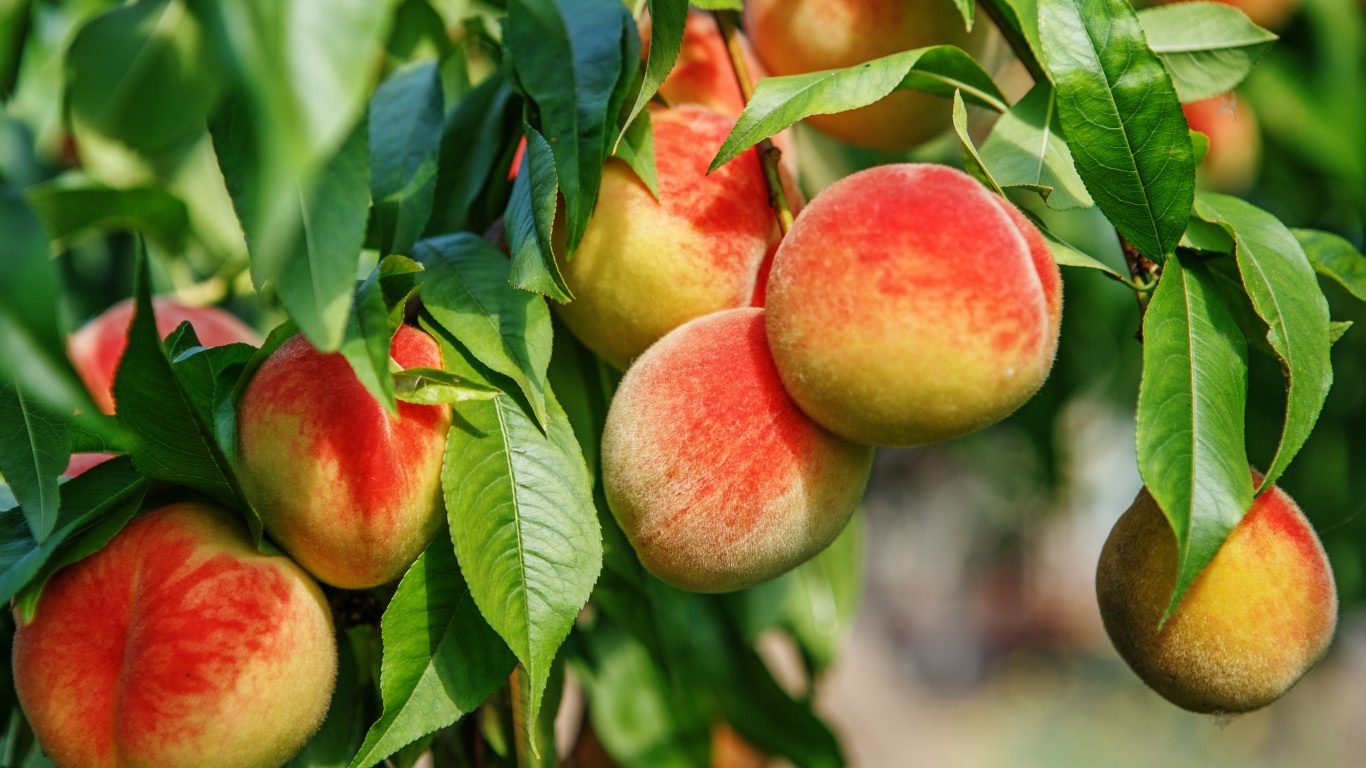
9. Peaches
Besides being a delicious summertime treat, peaches are full of vitamins and minerals, including a healthy dose of vitamin C and antioxidant polyphenols and carotenoids. They may, however, contain the bee toxins Fludioxonil and Phosmet as well as iprodione, a known carcinogen.
[in-text-ad-2]
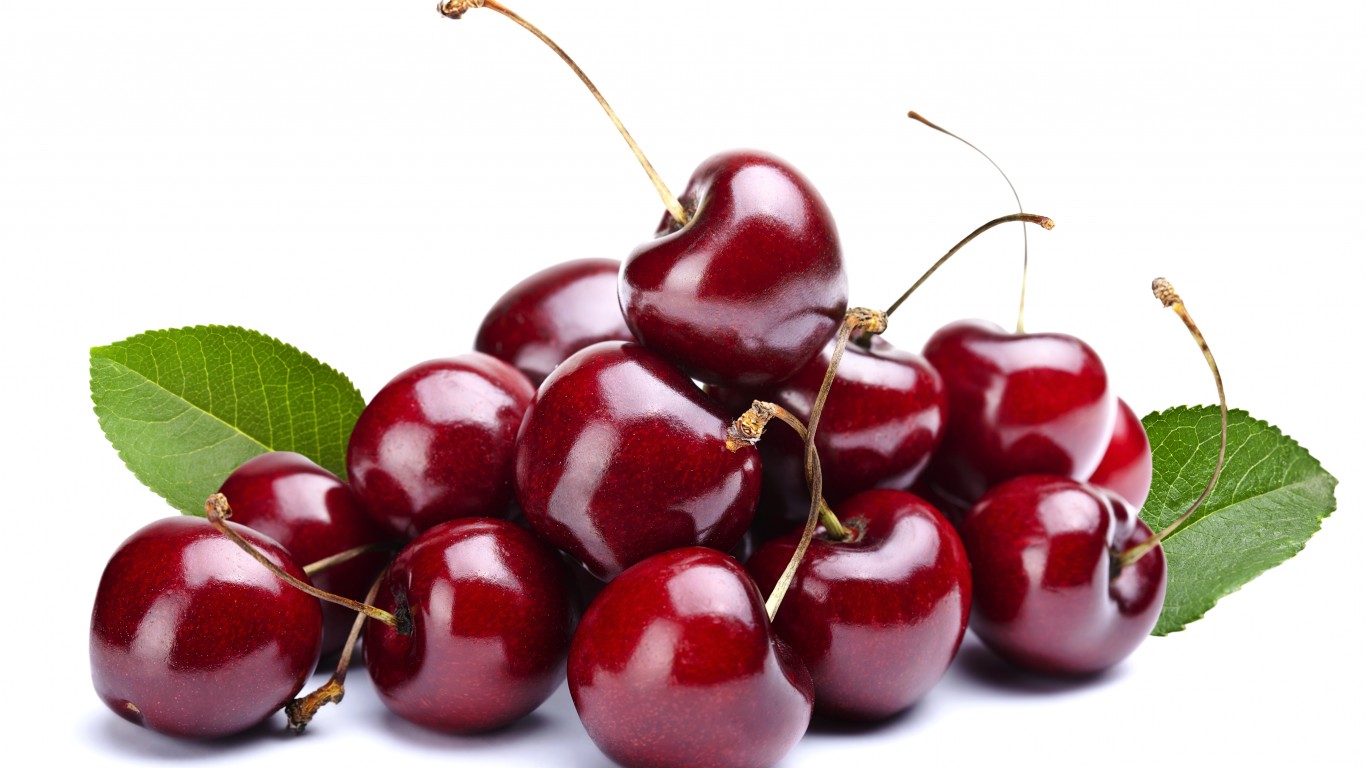
8. Cherries
Cherries are full of vitamins and minerals, and are a good source of potassium, essential for heart health. Among the pesticides they might contain, though, are Bifenthrin, known as a bee toxin and also a developmental or reproductive toxin.
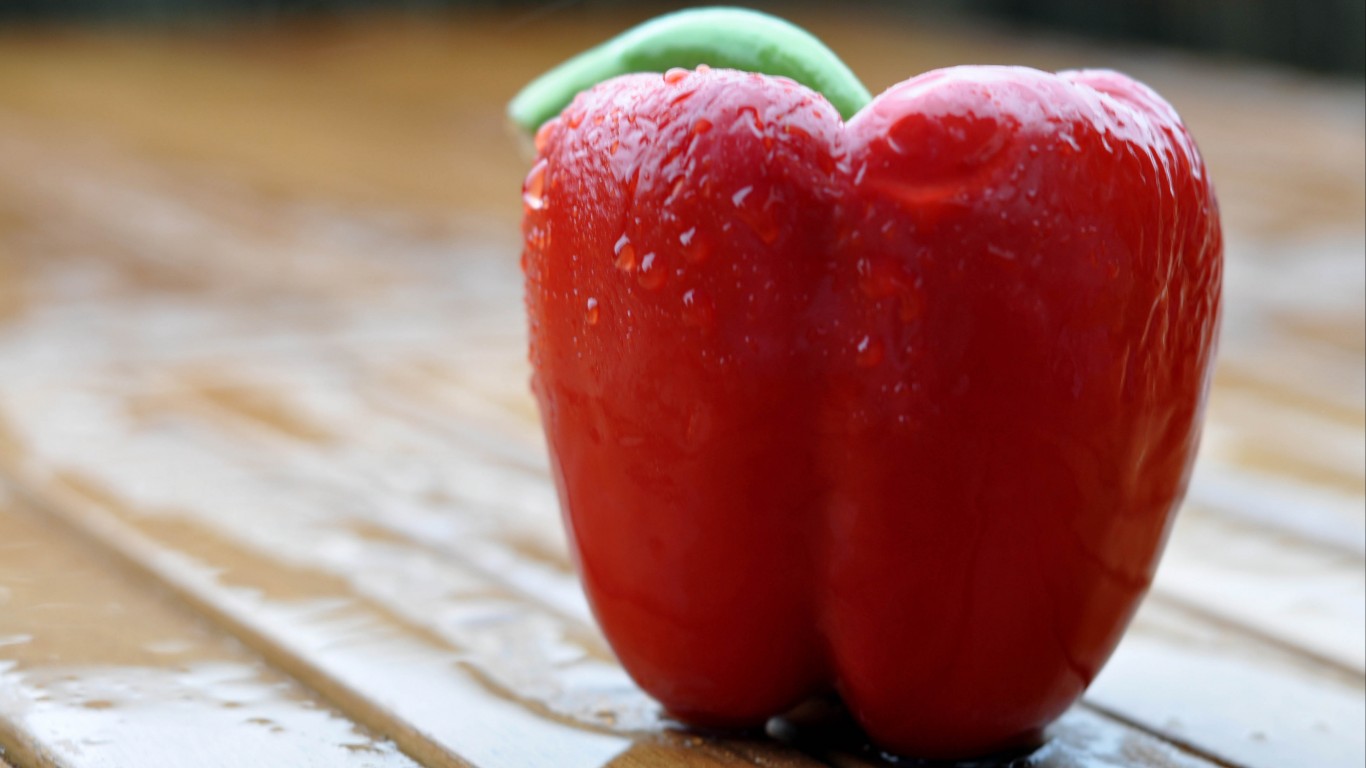
7. Bell and hot peppers
Bell peppers are high in vitamins and antioxidants, especially vitamin C and carotenoids. Some of their health benefits include improving eye health and reducing the risk of some chronic diseases. Both may contain trace amounts and sometimes significant doses of countless pesticides with deleterious effects on humans.
[in-text-ad]
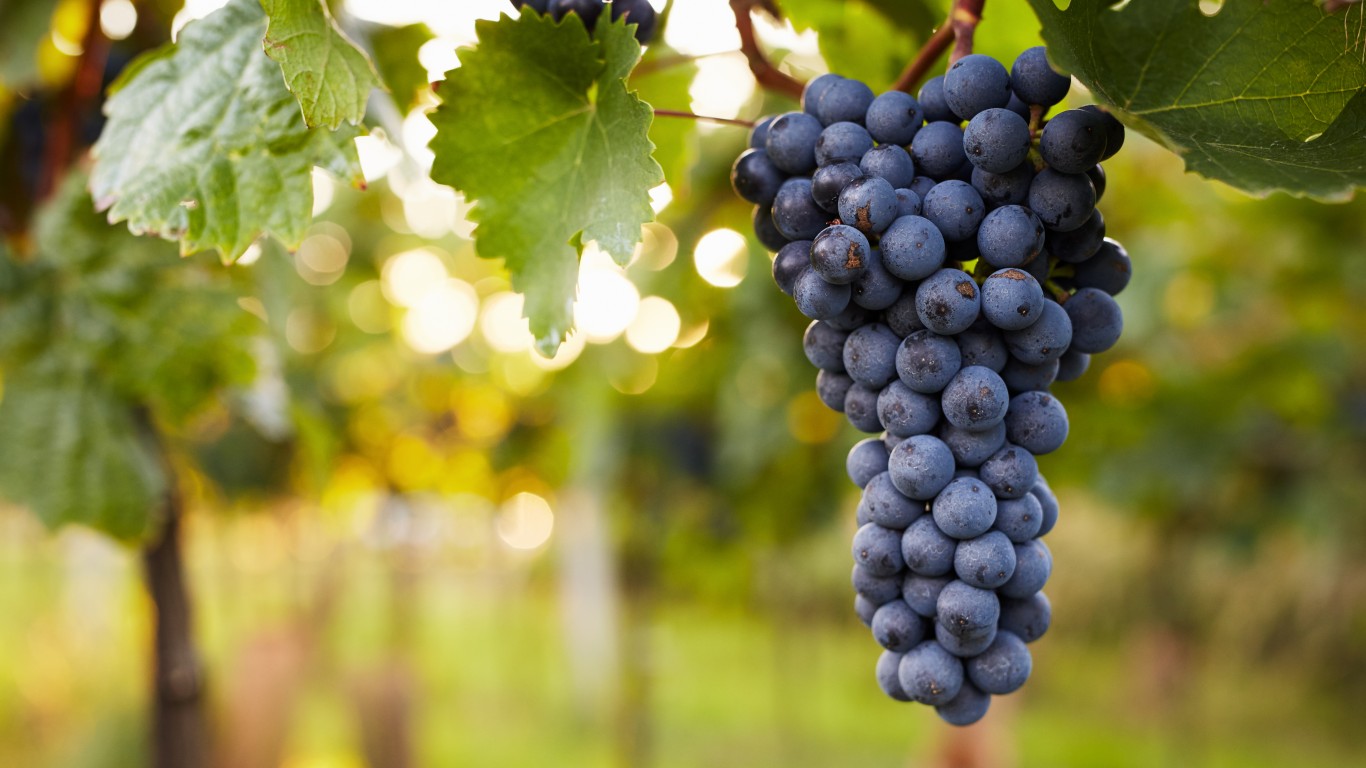
6. Grapes
Grapes are a great source of the antioxidant resveratrol, which some studies suggest may help prevent certain cancers including breast, liver, stomach, and lymphatic cancers. One of the main pesticides grapes contain is Imidacloprid, a strong bee toxin.
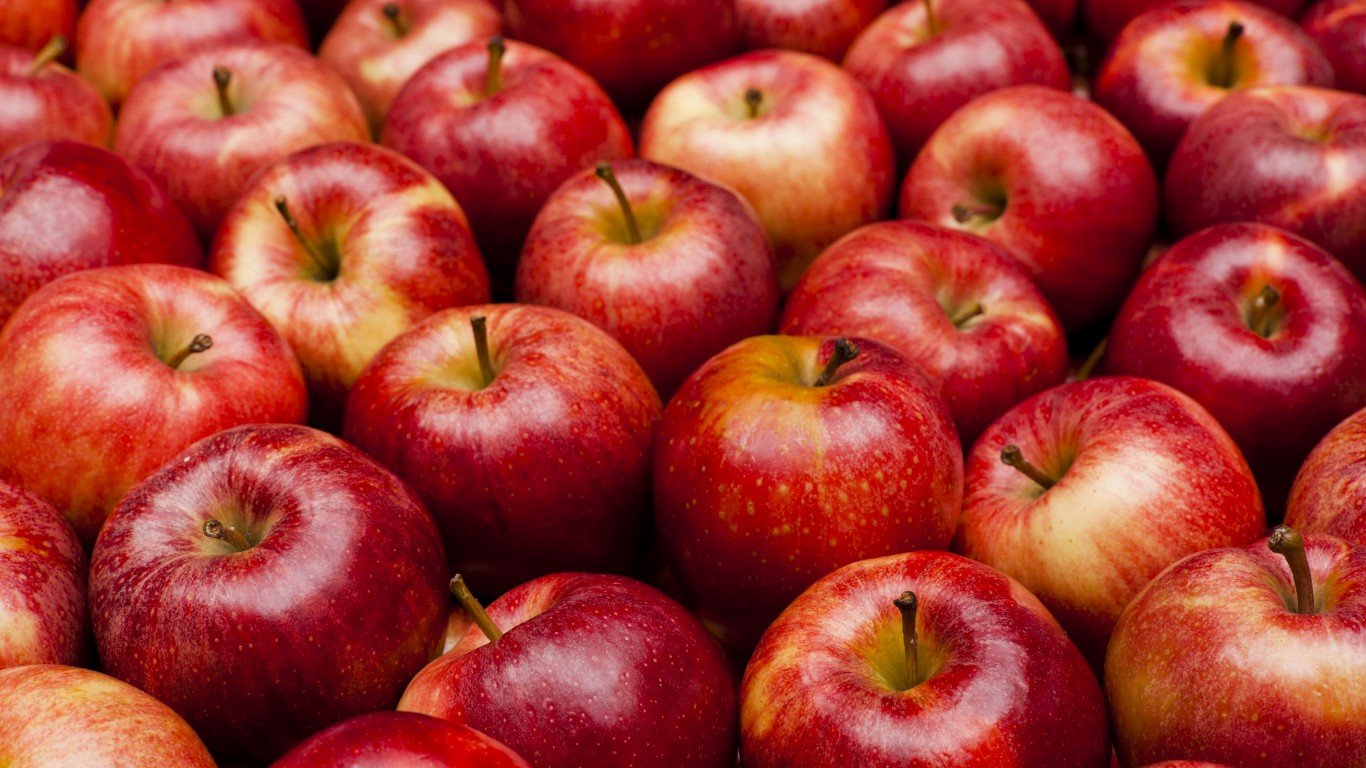
5. Apples
Apples – particularly their skin – contain a high concentration of the flavonoid quercetin, which has been studied extensively and is shown to inhibit the proliferation of multiple types of cancer including prostate, breast, lung, cervical, and colon. An apple a day may keep the doctor away, but apple-lovers should be aware that the fruit typically contains numerous pesticides, including Diphenylamine or DPA (which has no known toxicity), Thiabendazole (which may be carcinogenic and contain developmental or reproductive toxins), and Pyrimethanil (suspected of being carcinogenic).
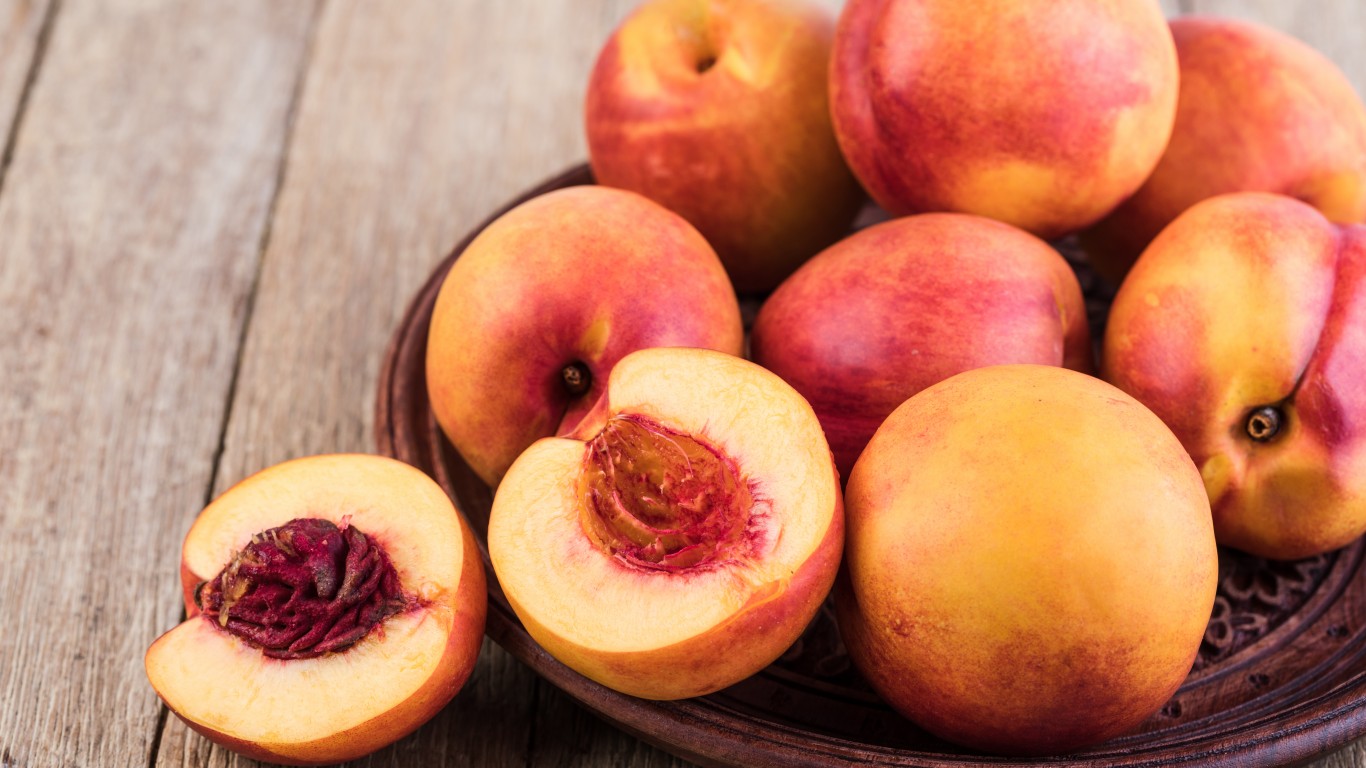
4. Nectarines
Nectarines are rich in vitamin C, vitamin A, and fiber, among other nutrients. The fruit may help with boosting immunity and lowering blood pressure. The main villain here is formetanate hydrochloride, a neurotoxin.
[in-text-ad-2]
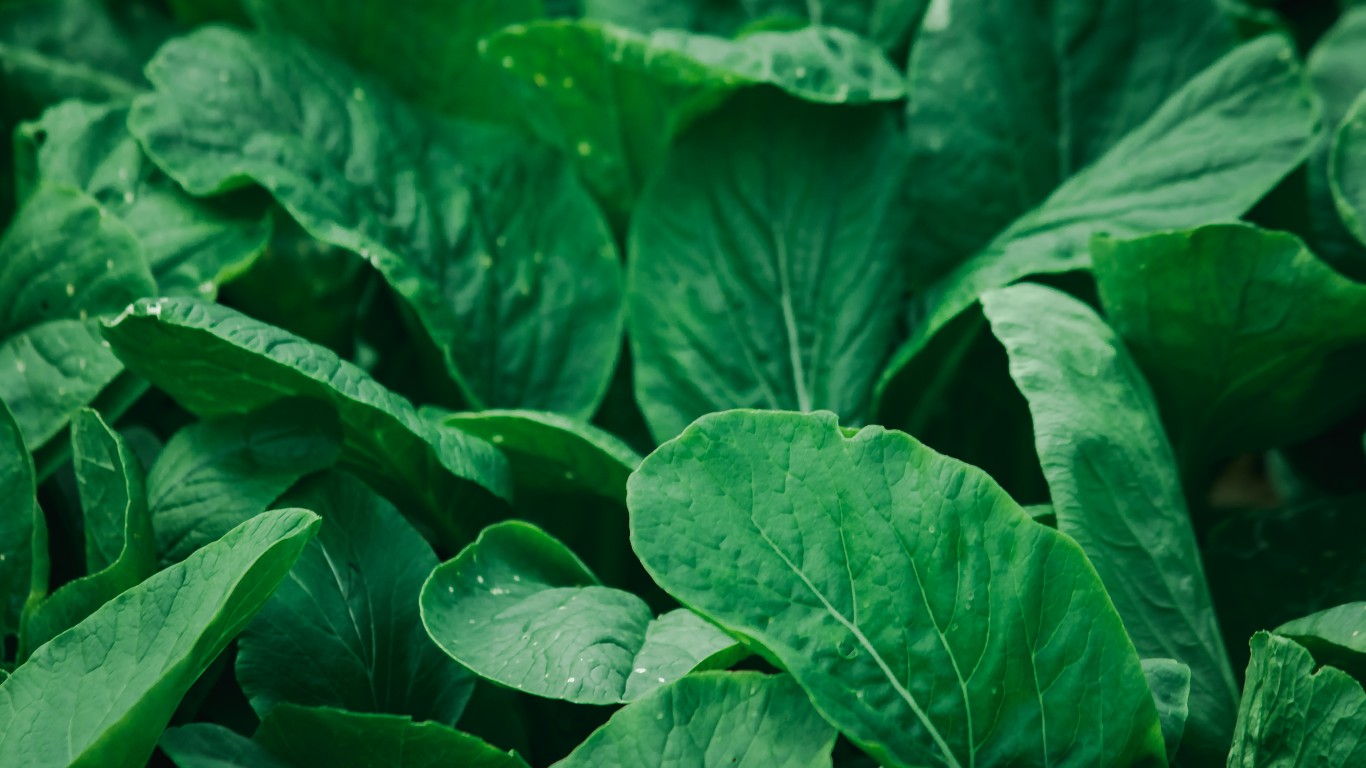
3. Kale; collard and mustard greens
Carotenoids in leafy greens like kale can also boost the body’s antioxidant defenses, helping to prevent cell damage and inhibit the formation of carcinogens. At the same time, ironically, about half the samples tested contained a suspected carcinogen, Dimethyl tetrachloroterephthalate, or DCPA.
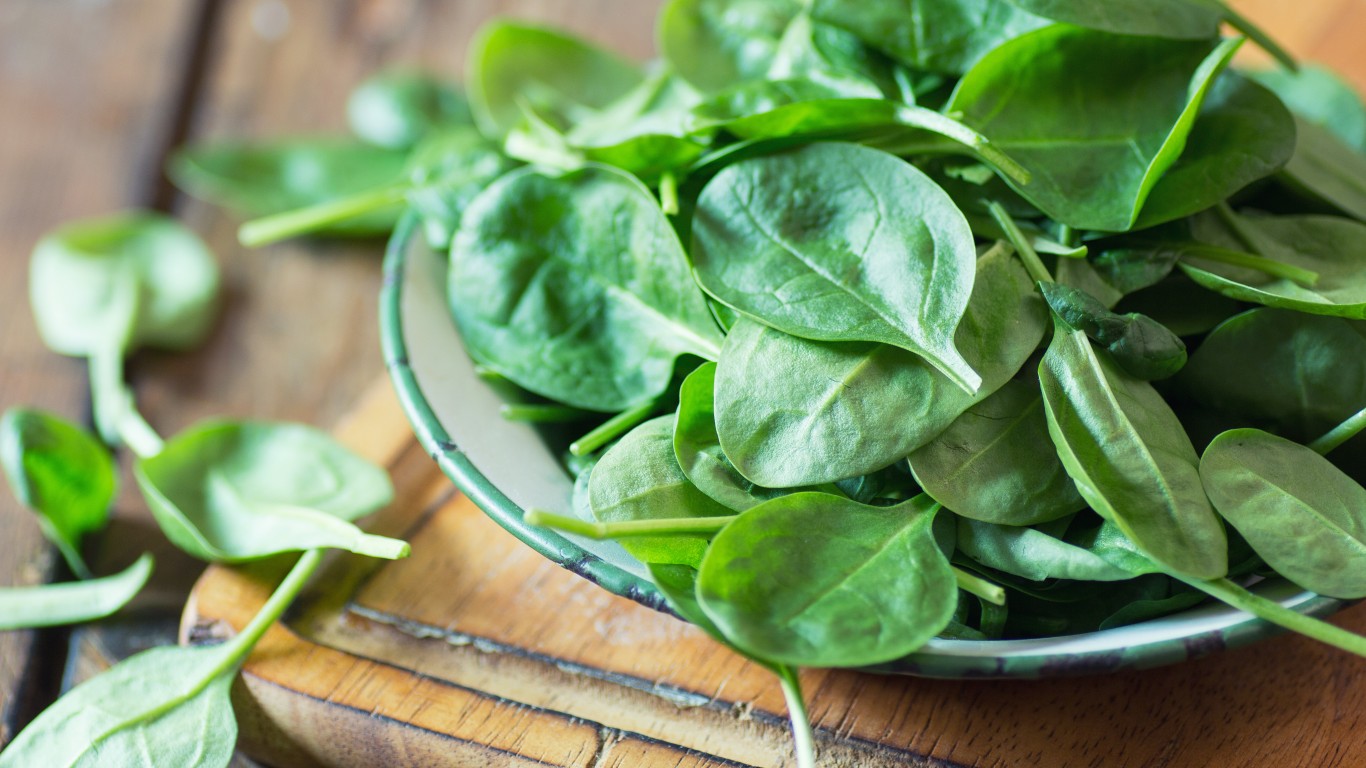
2. Spinach
Spinach is high in antioxidant carotenoids including lutein and zeaxanthin that could help protect against cancer of the esophagus, stomach, and mouth. The pesticide known as Permethrin, total was found on about 50% of the samples tested; this is a possible carcinogen, a slight bee toxin, and a suspected hormone disrupter.
[in-text-ad]
1. Strawberries
Strawberries are high in both vitamin C and ellagic acid, which can help prevent cancers of the skin, lung, breast, esophagus, and bladder. Wash them well, though, as they may contain various quantities of almost 50 pesticides.
Start by taking a quick retirement quiz from SmartAsset that will match you with up to 3 financial advisors that serve your area and beyond in 5 minutes, or less.
Each advisor has been vetted by SmartAsset and is held to a fiduciary standard to act in your best interests.
Here’s how it works:
1. Answer SmartAsset advisor match quiz
2. Review your pre-screened matches at your leisure. Check out the advisors’ profiles.
3. Speak with advisors at no cost to you. Have an introductory call on the phone or introduction in person and choose whom to work with in the future
Get started right here.
Thank you for reading! Have some feedback for us?
Contact the 24/7 Wall St. editorial team.